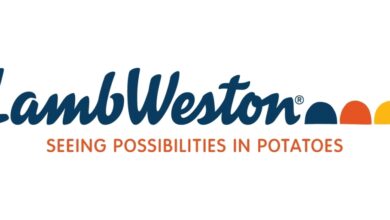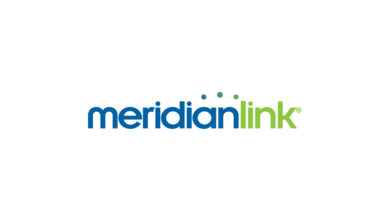Worldwide Veterinary Artificial Insemination Industry to 2026 – Growing Animal Husbandry and Fishery Industry is Driving the Market – ResearchAndMarkets.com

DUBLIN–(BUSINESS WIRE)–The “Veterinary Artificial Insemination Market – Growth, Trends, Covid-19 Impact, and Forecasts (2021 – 2026)” report has been added to ResearchAndMarkets.com’s offering.
The Veterinary Artificial Insemination market is expected to register a CAGR of nearly 4.66% during the forecast period, with a revenue of approximately USD 3,869.97 million in 2020, and it is expected to reach USD 5,069.20 million by 2026.
Companies Mentioned
- Bovine Elite LLC
- KRUUSE
- Agtech Inc.
- IMV Technologies
- Tek-Event
- Zoetis Inc
- Neogen Corporation
- National Meditek
- Iherdsman
- Swine Genetics International
- Select Sires, Inc
- SEMEX
- Cooperative Resource International (GENEX)
- Cogent
- Genus plc (ABS Global)
Key Market Trends
The Veterinary Hospital Segment is Expected to Gain a Significant Market Share in the Veterinary Artificial Insemination Market
The Veterinary Hospital Segment is expected to witness significant growth in this market, owing to higher prevalences of transmitting diseases and increasing adoption of artificial insemination techniques.
In India, Animal Husbandry Department’s launched a program to safeguard its employees and farmers against the COVID-19. The veterinary hospitals provided artificial insemination services during the COVID-19 pandemic with preventive measures such as provided with gloves, masks, sanitizers, and floor cleaners to maintain the optimal level of hygiene.
In the United States, ABC Veterinary Hospital provided artificial insemination services by keeping staff and pet parents safe during the COVID-19 outbreak and implemented new procedures for the prevention of COVID-19 infection.
Globally, an increasing number of hospitals performing artificial insemination techniques and a rising number of veterinarians are driving the market growth. For instance, according to the American Veterinary Medical Association, in 2018, in the United States, more than 90% of veterinary hospitals offered insemination services.
As per the Kerala Institute of Local Administration 2017 report, in India, the government is taking initiatives to raise productivity with the help of veterinary hospitals planning for appropriate interventions to increase the production and productivity of milk, egg, and meat which ultimately increase demand for the artificial insemination process.
For instance, as per Animal Husbandry, Dairying and Fisheries Department 2020-2021 report, in India, field institutions of the department provided breeding services to the cattle population. Furthermore, an artificial insemination service was provided for cattle and buffaloes at a cost of Rs.10 per insemination. A total of 48.88 lakh artificial inseminations were performed during the 2019-20 period.
Asia-Pacific is Expected to Witness a Significant Growth in the Market During the Forecast Period
The major factors driving the global veterinary artificial insemination market growth in the Asia-Pacific region include growing infectious diseases in animals and increasing awareness about artificial insemination among people.
In Asia countries such as India, China, and South Korea are severely affected due to the COVID-19 outbreak. During the COVID-19 pandemic, in May 2020, in India, the National Dairy Development Board (NDDB) launched an interactive webinar to create awareness about procedures to be followed in the dairy value chain during the COVID-19 pandemic. In addition, artificial insemination and breeding management, difficulties faced by co-operatives and ensured regular payments to farmers which have boosted the market growth.
Avian influenza is a highly contagious viral disease affecting several species of food-producing birds such as chickens, quails as well as pet birds. For instance, as per World Organisation for Animal Health, in Asia countries, Avian influenza continues to cause severe losses in poultry. Moreover, there is a rising in the adoption of artificial insemination to reduce the risk of infectious disease transmission among veterinary animals.
Many countries in Asia have encountered highly pathogenic avian influenza subtypes such as H5N1, H5N2, H5N6, H5N8 as well as the highly pathogenic H7N9 which resulted in outbreaks in 2018-2019. These outbreaks impacted animal and public health, trade, and the economy in affected countries. This factor is expected to boost the market as this will increase demand for the artificial insemination process in order to prevent infectious diseases among animals.
Furthermore, the growing demand for products related to fishery and animal husbandry is expected to drive the veterinary artificial insemination market. According to the National Statistics of Bureau, in 2017, produced over 3148.6 per 10,000 tons of milk.
Key Topics Covered:
1 INTRODUCTION
2 RESEARCH METHODOLOGY
3 EXECUTIVE SUMMARY
4 MARKET DYNAMICS
4.1 Market Overview
4.2 Market Drivers
4.2.1 Growing Animal Husbandry and Fishery Industry
4.2.2 Increasing Burden of Venereal Diseases in Animals
4.3 Market Restraints
4.3.1 High Cost of Equipment
4.4 Porter’s Five Force Analysis
5 MARKET SEGMENTATION
5.1 By Product Type
5.2 By End User
5.3 Geography
6 COMPETITIVE LANDSCAPE
6.1 Company Profiles
7 MARKET OPPORTUNITIES AND FUTURE TRENDS
For more information about this report visit https://www.researchandmarkets.com/r/seohsw
Contacts
ResearchAndMarkets.com
Laura Wood, Senior Press Manager
[email protected]
For E.S.T Office Hours Call 1-917-300-0470
For U.S./CAN Toll Free Call 1-800-526-8630
For GMT Office Hours Call +353-1-416-8900




